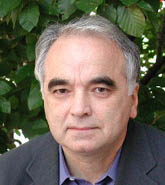Thermodynamics 2.0 | 2022 Program: Sessions and Abstracts
Mon - Wed, July 18 - July 20 , 2022 , Boone, North Carolina
Session T15: Quantum Formalism and Beyond
15:15-16:15. Wednesday July 20, 2022
Chair: Polina Khrennikova
Title: The Task of Developing a ‘Complementarity’ Theory: Complementarity and Bohr’s Complementarity, in Physics and Beyond
Abstract:T15.130
Abstract
Several investigations in the quantum-like modeling beyond quantum physics, especially in decision making, have addressed a possible role of Bohr’s concept of complementarity in these fields–understandably, given its role in quantum theory. This paper will reexamine this possibility, in part by considering, first, the difference (more common than is usually realized) between Bohr’s concept of complementarity and most, virtually all, of those used beyond physics, and secondly, in part correlatively, the role of probability in Bohr’s concept, essential to it but rarely considered properly, if at all. The paper, then, will use this role to address the question of information and entropy (specifically von-Neumann’s entropy in quantum vs. Shannon’s entropy in classical information) in quantum physics and quantum-like theories. Albert Einstein once said that thermodynamics is the only physical theory that will probably never be proved to be wrong. Perhaps, this is equally true, about quantum theory, in part for the same reason–both are irreducibly probabilistic and (informationally) entropic. On the other hand, there is no complementarity in Bohr’s sense in thermodynamics, while it redefined the nature of information and entropy in quantum physics. The question is, then, whether any theory, classical-like or quantum-like, in human and social sciences is ever likely to be seen in this way, and if it is quantum-like, whether complementarity is likely to be necessary in it..
.Keywords: complementarity, quantum theory, social sciences, information, entropy
